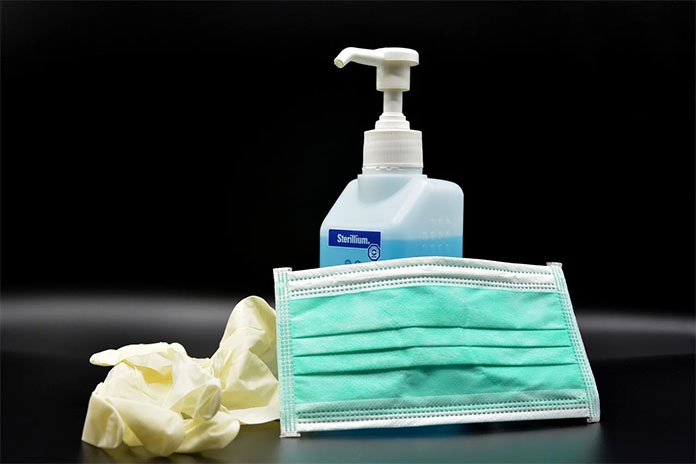
NEW JERSEY – Hand sanitizer has always been a must have within households and everyday use. Now with COVID-19, everyone is carrying around a bottle of hand sanitizer with them.
Although hand sanitizer has become an important part in stopping the spread of COVID-19, these products can result in potentially serious health consequences like alcohol overdose (poisoning).
Poison control centers have previously warned the significant dangers of misusing hand sanitizers and also disinfectants and cleaning products. As COVID-19 started to spread more and more, nationwide centers reported an increase in calls connected to chemical products.
“As poison center staff know, storing large amounts of hand sanitizer at home can be dangerous,” says Diane Calello, MD, executive and medical director of the New Jersey Poison Control Center at Rutgers New Jersey Medical School, Department of Emergency Medicine. “When you combine easy access to a potentially toxic product, with unsafe storage practices, and more time spent at home, dangerous health outcomes occur. Hand sanitizers have very high alcohol content, much higher than most alcoholic beverages. Swallowing or drinking hand sanitizer is never safe since this product is not meant to be ingested. If you ingest high concentrations of alcohol, you are risking your health and your life; the effects of severe alcohol overdose can be irreversible and deadly.”
The U.S. Food and Drug Administration (FDA) have recently warned consumers about methanol and 1-propanol contamination within certain hand sanitizer products. They also warned about the product packaging of certain hand sanitizer products that looks similar to common food and drink items.
The FDA currently has 190 hand sanitizers on their “do not use” list, with that number continuing to increase.
The New Jersey Poison Information & Education System have listed below important information about hand sanitizers:
- Drinking hand sanitizer is never safe; it can be toxic and cause lasting and irreversible health effects. Alcohol affects children differently than it does adults. A small amount can cause devastating health effects.
- Hand sanitizers contaminated with methanol or 1-propanol are more toxic when swallowed than those containing the approved ingredient, ethanol.
- These products are only to be used on your hands, nowhere else on the body.
- There are no hand sanitizers approved by the FDA. Products that claim to be “FDA-approved” are illegal. Do not buy these products.
- Many hand sanitizers have been recalled for contamination and product packaging concerns.
- Some manufacturers have designed their products to look like children’s food/yogurt pouches, candies, snacks, juice/water bottles, beer cans, and vodka bottles.
- If you have young children or pets at home, keep these products up high, out of sight and reach.
- Do not leave hand sanitizers in easy to reach places like purses/bags, vehicles, nightstands, counters, etc. Locked up is always best.
- It is not safe for young children to use hand sanitizer by themselves; they must have adult supervision. These products should not be placed in young children’s backpacks, lunchboxes, or luggage.
If you feel that you’ve been exposed to a recalled hand sanitizer or have ingested a hand sanitizer product, even those without contamination, call your local poison control center at 1-800- 222-1222 immediately. If someone is unconscious, not breathing, hard to wake up, or having a seizure, call 9-1-1 immediately.






